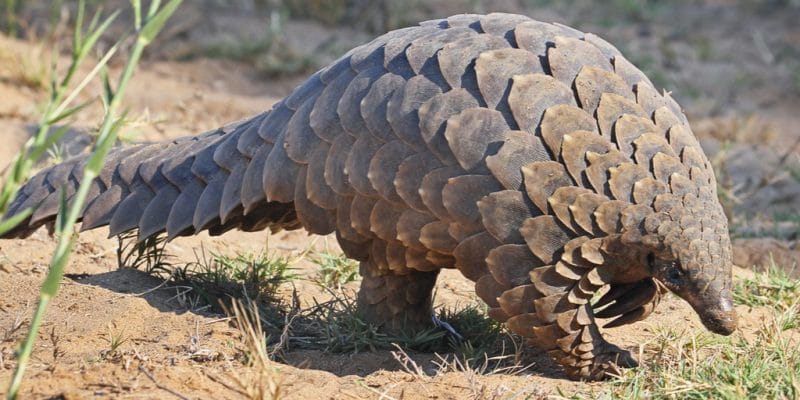The Covid-19 pandemic, which is wreaking havoc around the world, should provide some respite for the pangolin, a mammal in very great danger of extinction. This scaly animal is identified by Chinese scientists as the cause of this globally confining disease.
The world is facing an unprecedented pandemic, with a death toll to date of more than 13,000, and more than 300,000 people infected. For the moment, the African continent is less affected than others. However, the number of cases continues to rise and already exceeds the 1,000 infected people. One of the main consequences of this health crisis is the drop in the consumption of pangolin meat on the shelves, particularly in Central Africa, where this species is highly prized.
This decline is due to the suspicions of Chinese researchers that pangolin is a carrier of coronavirus germs. “Researchers at the South China Agricultural University in Guangzhou named pangolins as a plausible animal source at a press conference on February 7, 2020. Researchers said they found a coronavirus in smuggled pangolins that was 99 percent consistent with the virus circulating in humans,” Nature magazine reported in its February 27, 2020 report.
Like a wildfire, the Chinese researchers’ announcement has caused panic not only among consumers of pangolin meat in Africa, but also among hunters who are used to handling the animal. In Gabon, several NGOs (non-governmental organisations) note with satisfaction the decline in sales of the meat of this scaled animal in the markets of Libreville, the capital of Gabon. The decline is being observed as the Covid-19 pandemic progresses in Africa.
Covid-19: a recombination of two viruses?
All over the world, researchers are under pressure to find a drug, a vaccine and find the origin of Covid-19. New publications seem to clear some of the pangolin. “The coronavirus isolated from pangolin is capable of entering human cells, whereas the coronavirus isolated from bats is not (…). The Sars-CoV-2 virus (covid-19) is thought to be the result of a recombination between two different viruses (bat and pangolin),” explains Alexandre Hassanin, lecturer at the National Museum of Natural History, a higher education and research institution based in Paris, France.
In China, the findings of scientists pointing the finger at the pangolin led to a ban on eating its meat, or on trade in these scales, which fuel a vast traffic between Asia and Africa. Pangolin scales are used in traditional Chinese medicine. Some NGOs estimate that a kilogram of pangolin scales costs $1,000, which is equivalent to the price of ivory. The prohibition of pangolin products in China is expected to have a direct impact on the conservation of this mammalian species in Africa.
A species in need of protection
Pangolin is one of the most heavily poached species in the world. This situation is partly due to the behaviour of the animal, which rolls into a ball in the face of the slightest danger. In the face of its natural predators, the pangolin is saved thanks to its impenetrable scales. But by curling up on itself, the mammal becomes easy prey for hunters. This situation, combined with the development of the black market for the sale of scales, is causing the decline of the species.
On World Pangolin Day, instituted by animal rights activists, the figure of 100,000 pangolins that have been victims of illegal trafficking since 2011 was announced. But it could be much higher. According to the International Fund for Animal Welfare (IFAW), between 2006 and 2015, more than 1.12 million pangolins were trafficked globally, which represents more than 120,000 pangolins killed each year.
In Cameroon, 3 tons of pangolin scales were seized at the Autonomous Port of Douala in 2019. Yet the Convention on International Trade in Endangered Species of Wild Fauna and Flora (CITES) strictly regulates the pangolin trade. Measures that are clearly less dissuasive than the coronavirus…
Jean Marie Takouleu







